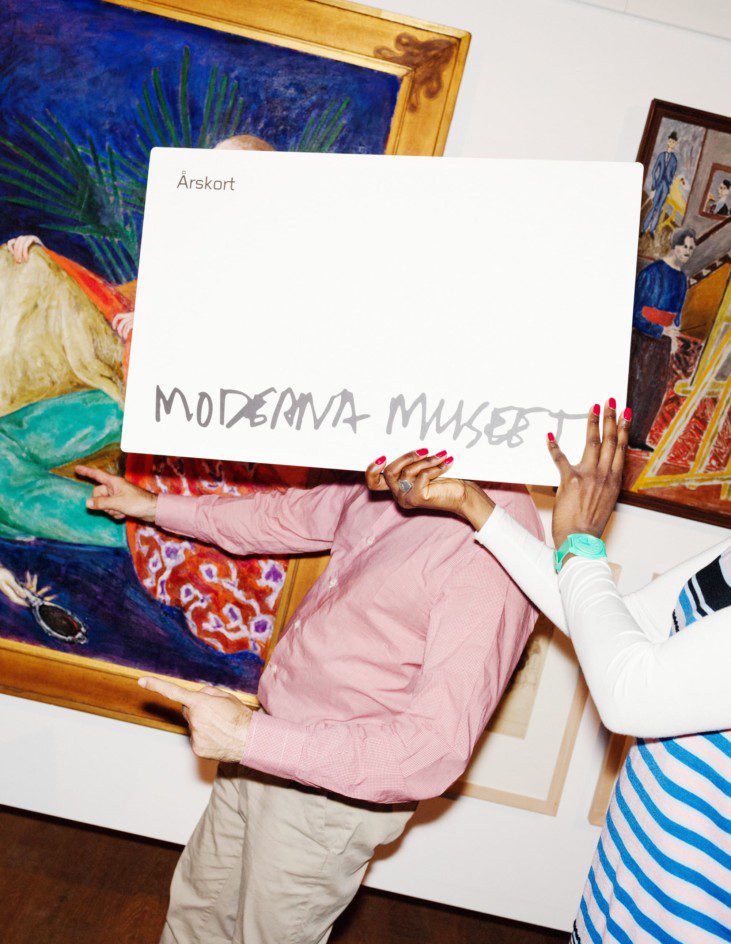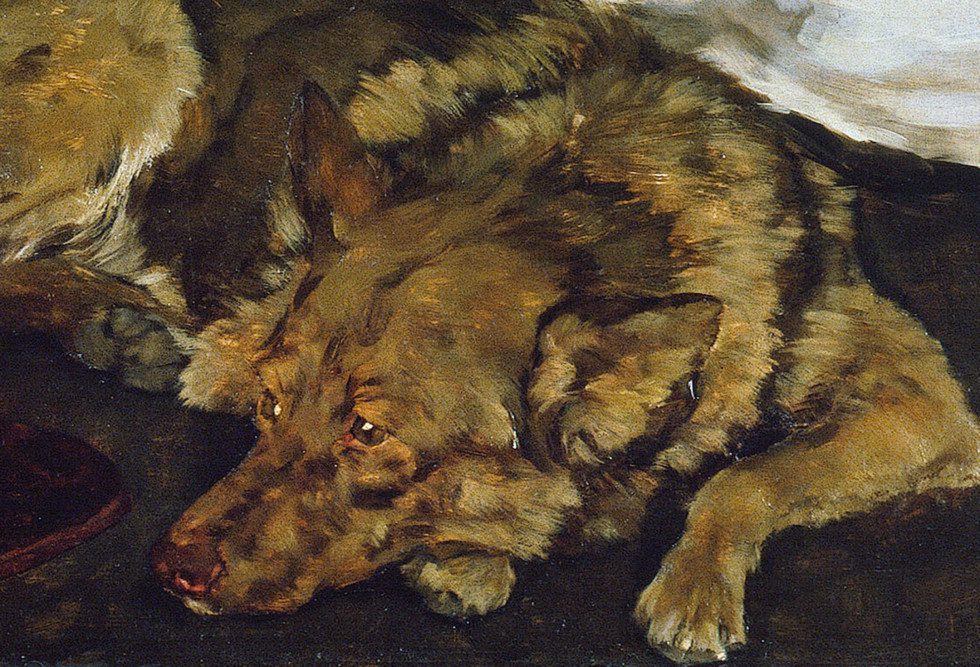
Lotte Laserstein, Detail of Painting "Evening over Potsdam", 1930 Staatliche Museen zu Berlin, Nationalgalerie © Lotte Laserstein Bildupphovsrätt 2023
Evening on the terrace
Reading of a dramatic work
17.3 2024
Stockholm
Evening on the terrace
Reading of a dramatic work
Date
Sunday 17 March 2024
Time
At 13–14.30
Place
The Auditorium, floor 2
Language
Swedish
Price
150 SEK, 120 SEK senior/student/Klubb Moderna
Contact: Karin Malmquist, Moderna Museet
What really happened on the terrace in Potsdam, and why is Jesus a woman?
When German artist Lotte Laserstein fled to Sweden in 1937 it was the beginning of a lifelong exile. Long forgotten in Germany, she was rediscovered in the early 2000s. One of her most significant works is ‘Evening over Potsdam’ (Abend über Potsdam, 1929-30), currently on display in the exhibition “Lotte Laserstein – A Divided Life”.
The painting depicts five friends gathered around a table set with fruit, bread and drinks in a composition reminiscent of Leonardo da Vinci’s “The Last Supper”.
Among those fascinated by Lotte Laserstein are playwrights Lutz Hübner and Sarah Nemitz. When they were asked to write something for the Hans Otto Theatre in Potsdam, Germany, it resulted in the play “Abend über Potsdam” (Evening over Potsdam) which premiered in 2017.
“Evening over Potsdam” has never before been performed in Sweden and the actor Odile Nunes initiated the reading at Moderna Museet. Actors Frida Hallgren, Linus Troedsson, Manuela Gotskozik Bjelke, Emil Hedayat and Matilda Ragnerstam are participating as well.
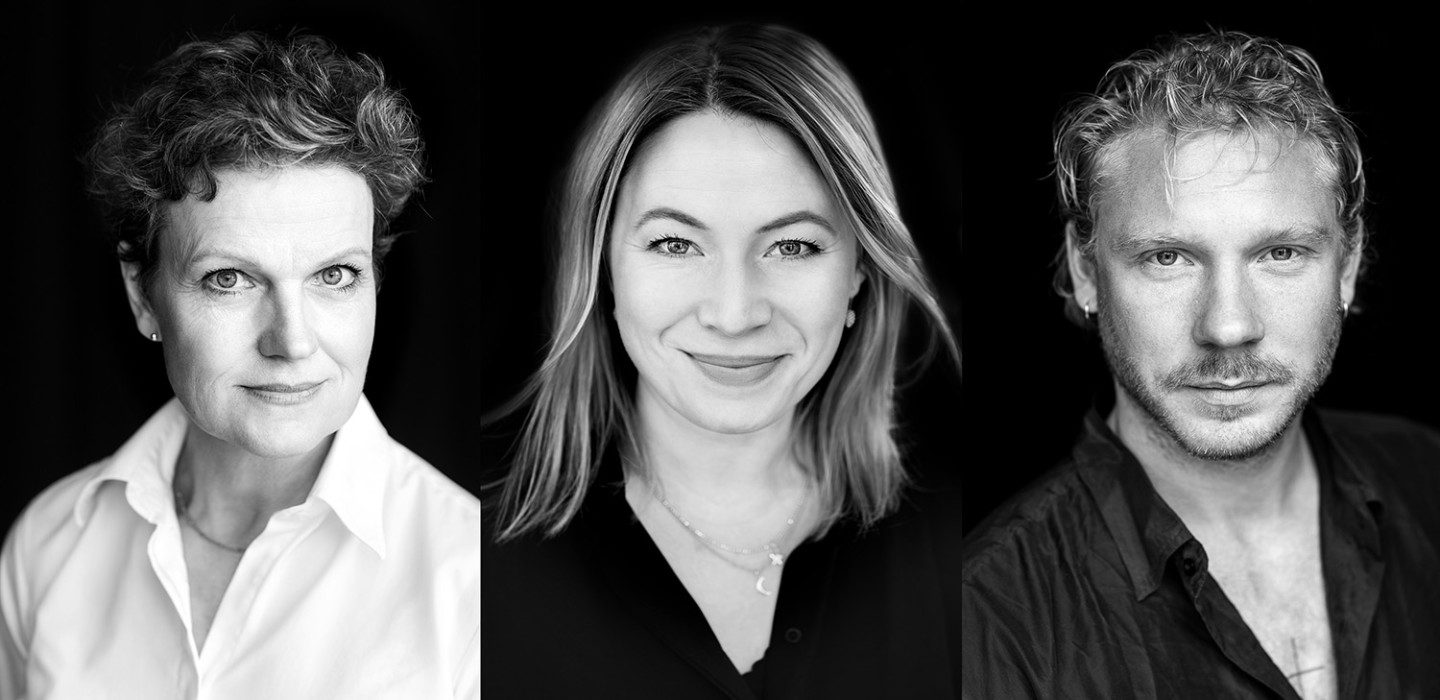
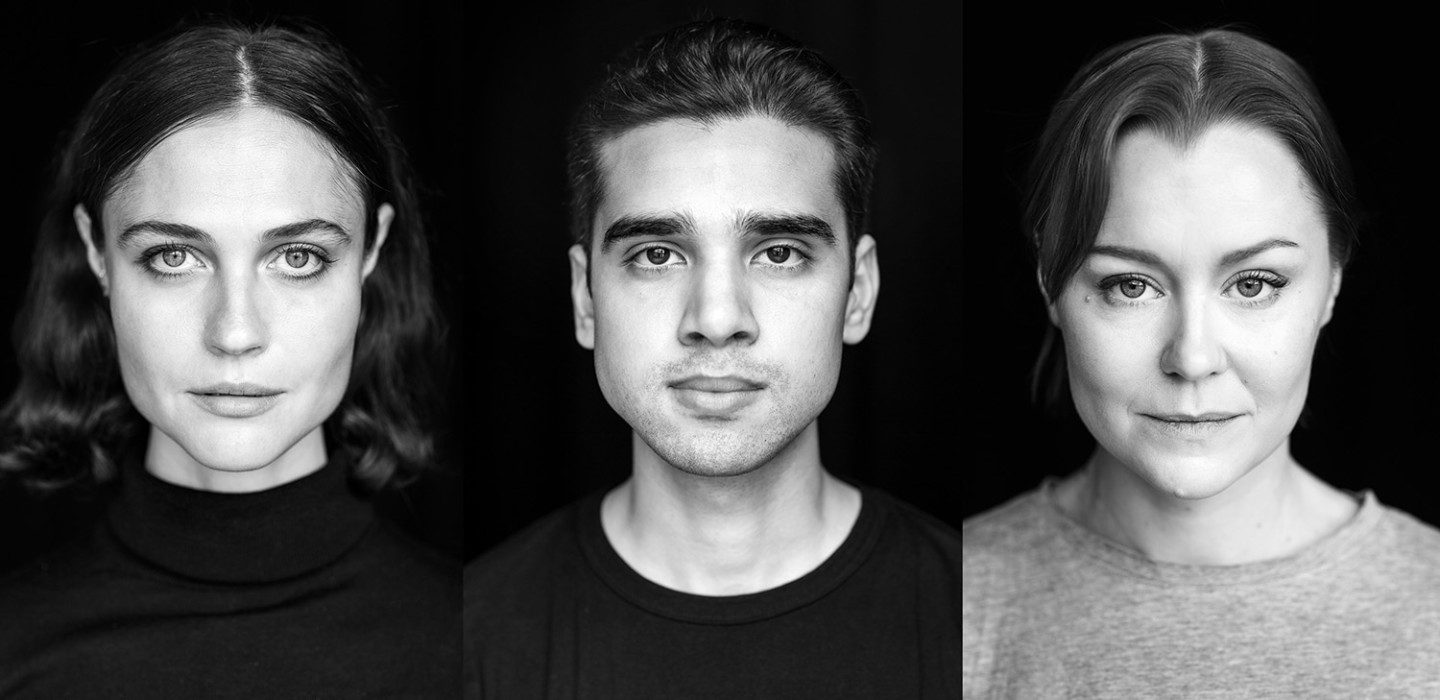
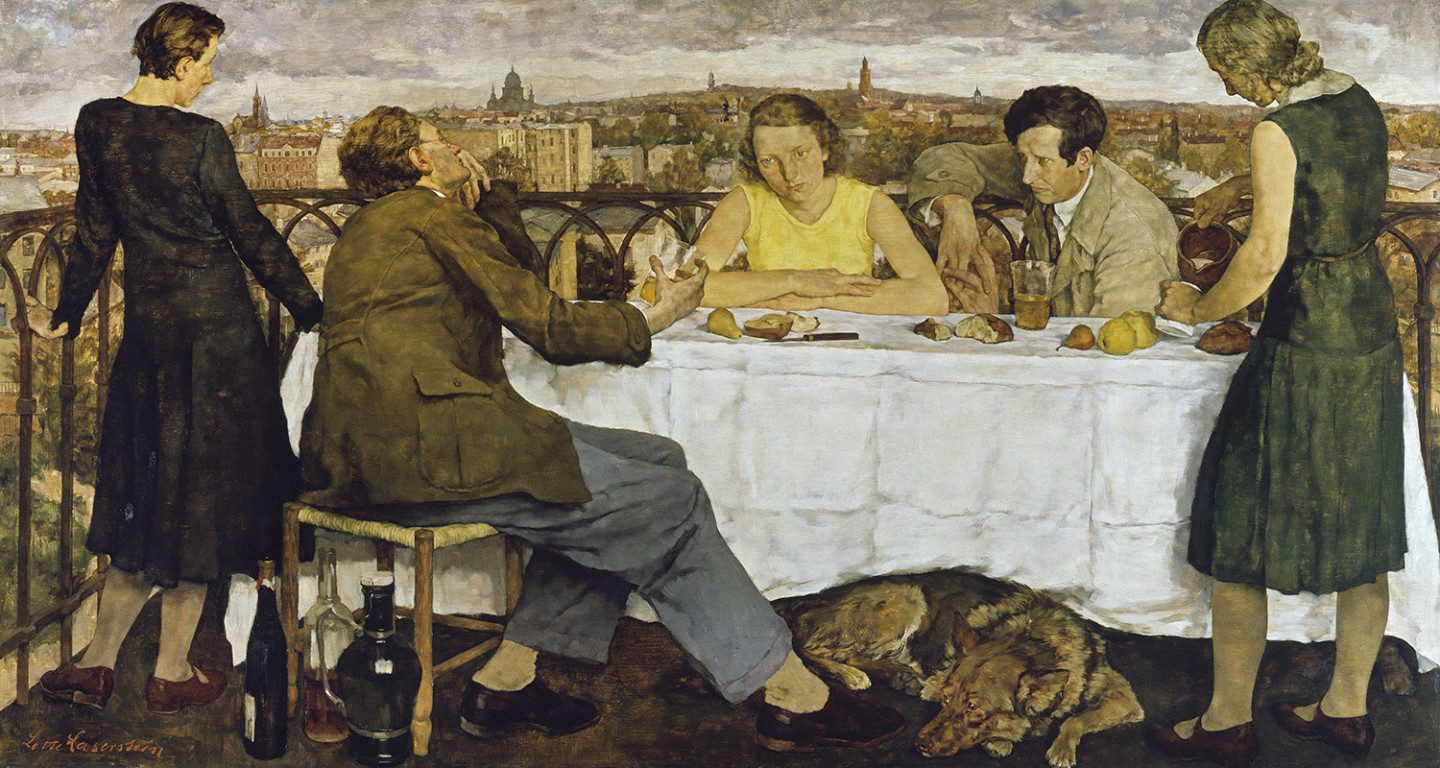
On the play
”Abend über Potsdam” from 2017 is composed around the figures in Lotte Laserstein’s painting and the particular time in which it was created. A time when the democratic Weimar Republic is in decline; unemployment is high, the economy is in crisis and anti-Semitism on the rise.
The atmosphere in the work is strange, characterised by emptiness and resignation. The friends’ gazes are intense but never meet. Some of the people are identified, among them Traute Rose – Laserstein’s close friend and favourite model – while some are more unknown, which has given the playwrights Lutz H¨bner and Sarah Nemitz, free rein to imagine events and dialogue.
On the playwrights
Lutz Hübner (b. 1964) is a trained actor but has also studied German, philosophy and sociology. He works as a playwright, director and freelance writer. Sarah Nemitz (b.1964) has studied dance, German, philosophy and art history. She works as a playwright, screenwriter and actor.
The duo has worked together continuously since 2001, writing around 40 plays. They are widely translated and are among the most performed contemporary playwrights in Germany.
In collaboration with Kulturhuset Stadsteatern
Producer: Helena Smeds, Kulturhuset Stadsteatern
Lotte Laserstein
“A Divided Life” is the most extensive exhibition of work by the groundbreaking German-Swedish artist Lotte Laserstein to date in the Nordic …
A Divided Life
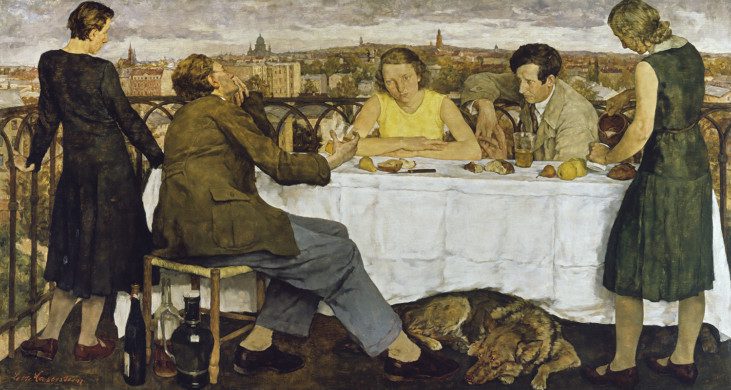
Exhibition Guide
In the Moderna Museet exhibition guide, you will find audio guides, texts and other material aimed at making the visit to the museum more accessible. …
Your guide to the museum
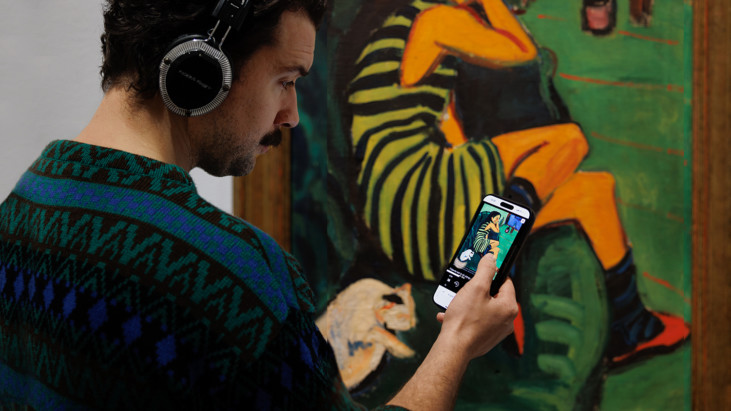
Annual Pass
The Annual Pass gives you free admission to all our exhibitions for a whole year. Buy your Annual Pass today and visit us as often as you want! …
Annual Pass
